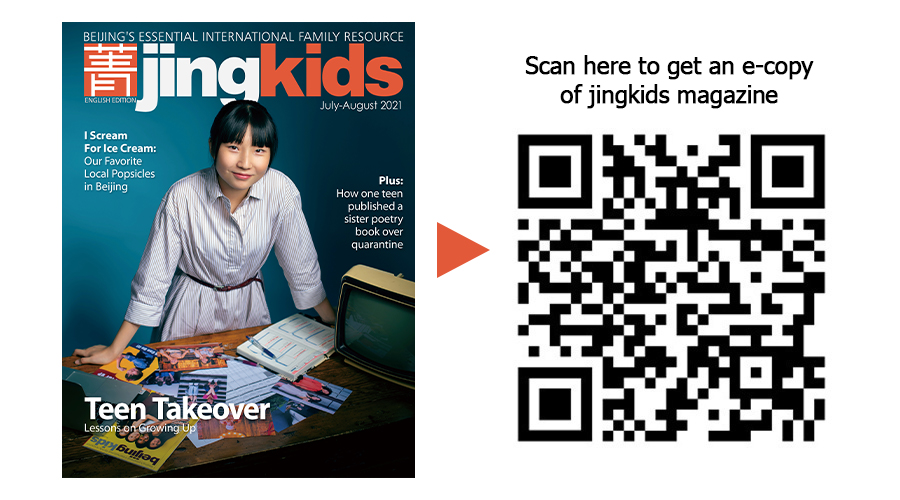What’s your name? For third-culture kids living in Beijing, a seemingly straightforward question such as this is wrought with complexity. Names are often the first things you learn about a person, not to mention the first thing you’re taught about yourself. They play a critical role in shaping our identity and the ways we move about the world. As a result, it makes sense that so many of us spend years grappling with that question.
From nicknames to English names through to Chinese names, we asked three Beijing teens to tell us about their names and what they mean to them.

Meet XueFei Liu
I’m often faced with the question: “Do you prefer XueFei or Rosalind?”
To be honest, I used to prefer XueFei, which prompts the obvious question, “Then why did you have Rosalind?”
My reason for choosing an English name was very disheartening. I was so sick of being bullied in primary school for my Chinese name by teachers and students that I decided to come up with an English name. For once, I ignored my parents’ advice. When I was reading Shakespeare’s As You Like It, the name Rosalind called out to me, and I settled on it. Going back to school with an English name made me feel different. People no longer pronounced my name wrong, no longer gave me silly nicknames, nor laughed at my name. So, for four years, I was proud of being Rosalind.
But when I hit freshmen year and transferred schools, COVID-19 forced us into quarantine and gave me time to think. And I started to realize that Rosalind wasn’t that perfect anymore. Walking down the halls with an English name was what I wanted, but it was hiding my Chinese identity. So, when I returned to campus during sophomore year, XueFei started appearing on my tests, reports, and signatures. That’s when it dawned on me. I realized that Rosalind and XueFei are equally important to my identity, and I didn’t need to ditch one part of me for the other. While my papers are all signed with XueFei, my friends and teachers call me Rosalind. Going back to the original question, here’s my answer: I prefer both, and it’s amazing being in the best of both worlds.

Meet TianTian Xu
My name is TianTian and no, I don’t have an English name. TianTian is my English name and my Chinese name.
“TianTian” means “sky sky,” or “day day,” or simply, “every day.” My parents gave me this name because they thought it would be easy to pronounce in both English and Chinese. But it turns out nothing is ever easy when it comes to names, especially for those of us living between two cultures.
In the US, people hesitate before reading out my name or don’t bother trying. I joined a Zoom webinar-based in the states this year and was the only person whose name was not read aloud with their question. In China, the statement, “My name is TianTian” is always followed by, “But what’s your full name?” because it’s so hard for people to believe my real name would be so simple, a nickname typically given to children.
In international schools, it’s almost expected that you have a Westernized English name. My fifth grade English class in Beijing briefly knew me as Skye, a name that never felt mine. Never underestimate the subtle peer pressure of being the only one in a class of 20 without an English name during rollcall.
But I don’t want to change my name for the convenience of others and to avoid standing out anymore. Just like our identities as third-culture kids, my name falls between two cultures. Blending in was never an option.
It is my choice and my honor to be TianTian, every day.
Meet Tadej Trpkoski
I see my name as a representation of two things: my cultural and personal identity. Both of these things make my name what it is, and a change in either would alter my perception of my own name. The simplicity of my nickname, T, allows me to merge both of these concepts and create a solid self-identity which I am happy with, by keeping a part of my old name inside, and to fit in better with the new people that I meet thanks to the brief structure and simple pronunciation. When moving to a new place, I believe it is important to be able to merge with the new culture that you encounter. While this can’t always be accomplished with a name change, someone who is in my position – having to sort of start over in life and get to know an entirely new world, almost – should switch some aspect of their name in order to fit their foreign status better.
KEEP READING: How To Get a WeChat Name That Doesn’t Suck
Images: Uni You

This article appeared in the jingkids 2021 July-August issue




